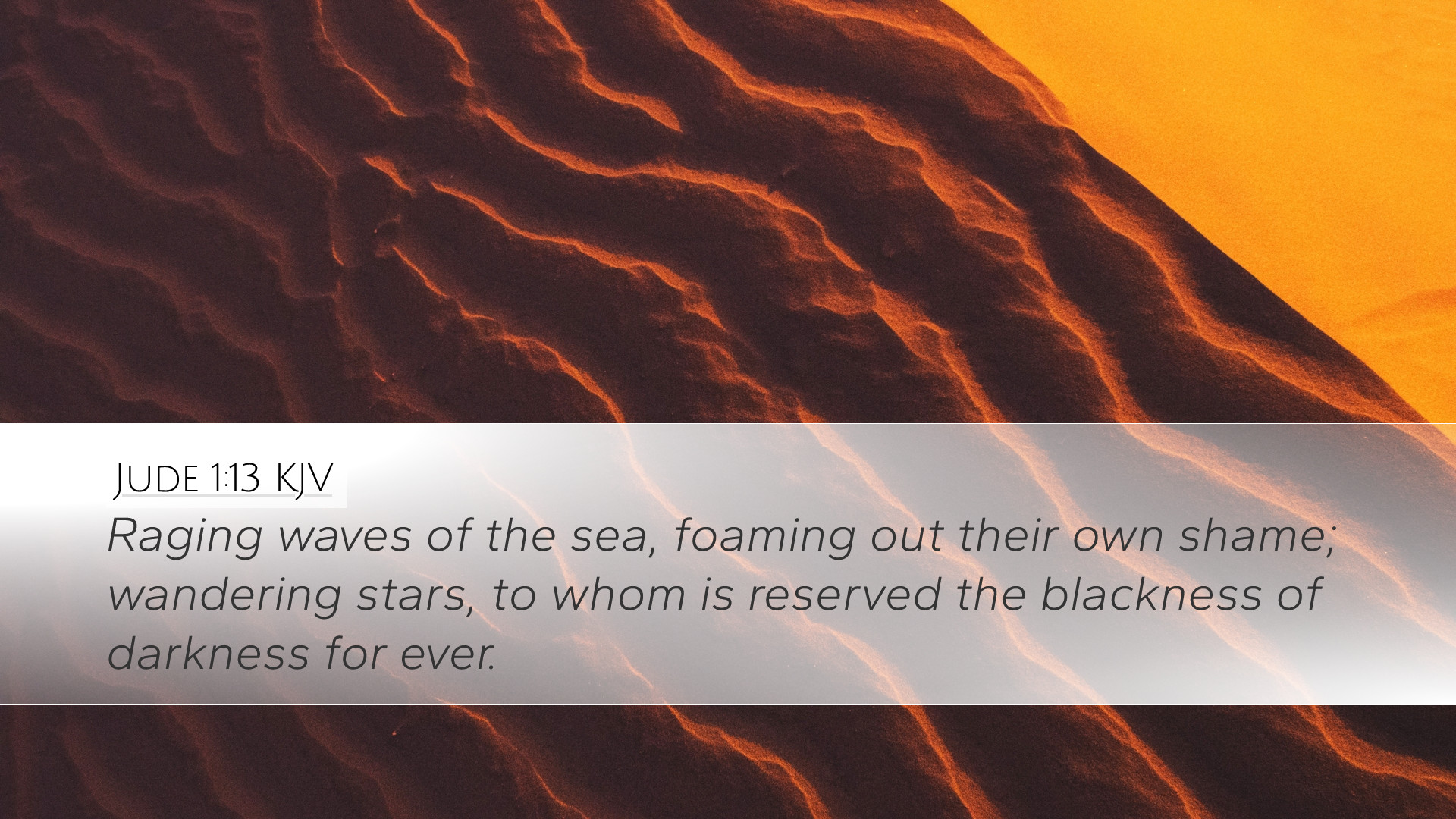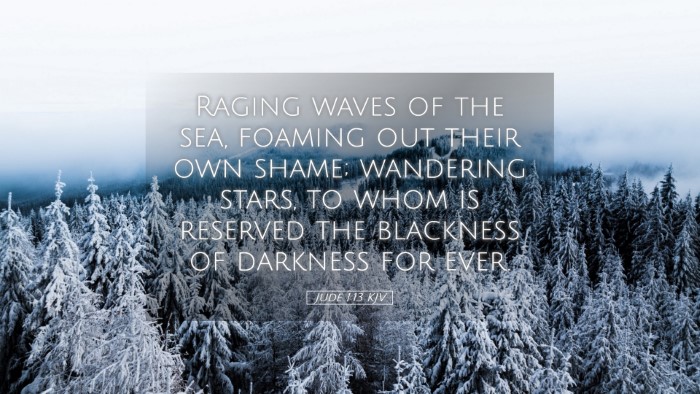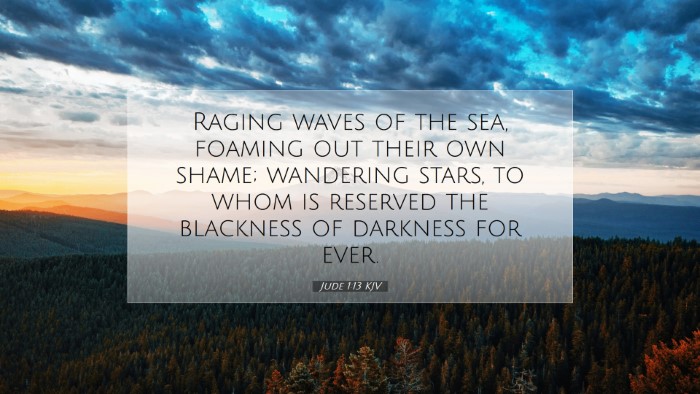Commentary on Jude 1:13
Jude 1:13 states:
"Raging waves of the sea, foaming out their own shame; wandering stars, to whom is reserved the blackness of darkness for ever."
Contextual Overview
The Epistle of Jude provides a clear warning against false teachers and the moral decay that can infiltrate the Church. Jude emphasizes a need for vigilance and the necessity of contending for the faith. In these verses, Jude employs vivid imagery to illustrate the nature and fate of these contentious figures within the church.
Verse Breakdown
1. "Raging waves of the sea"
Interpretation: This imagery conjures the picture of tumultuous seas, representing chaos and instability. The "waves" symbolize the unpredictable and destructive nature of the false teachers’ doctrines.
Henry notes that these waves not only indicate an outward disdain but also a deep-seated inner agitation. Just as waves crash violently upon the shore, these false teachers disrupt the spiritual tranquility of the church.
2. "Foaming out their own shame"
Significance: The idea of foaming suggests not only activity but also a certain uncleanliness. The "shame" they produce is intrinsic to their being. Barnes emphasizes that their very actions and doctrines reveal their moral bankruptcy.
Clarke elaborates that the foaming represents the outward manifestation of the corruption within, suggesting a juxtaposition to the purity expected of true believers.
3. "Wandering stars"
Imagery: This metaphor conveys a sense of aimlessness and instability, akin to celestial bodies that do not adhere to their established paths. Henry observes that wandering may reflect the erratic behaviors of these individuals who do not adhere to the truth.
Barnes adds that stars, often symbols of guidance, are turned to wanderers, indicating that these teachers lead others astray instead of guiding them toward the light of truth.
4. "To whom is reserved the blackness of darkness for ever"
Judgment: This phrase underscores the severity of their fate. The "blackness of darkness" signifies a state of utter despair and separation from God, a theme familiar in Scripture concerning the ultimate fate of the wicked.
Clarke comments on the eternal aspect of this punishment, linking it to the concept of absolute ruin away from the presence of God. This stark reality serves as a somber warning for both the false teachers and those who might follow them.
Theological Implications
The descriptions in Jude 1:13 highlight key themes pertinent to Christian doctrine:
- The Nature of False Teaching: As represented through the metaphor of "raging waves," it illustrates the turbulent influence of heresy.
- The Visibility of Shame: The notion that wrongdoing produces shame underlines the importance of holiness and integrity in leadership.
- Judgment and Accountability: The reserved "blackness of darkness" serves as a stark reminder that every teacher will face God’s judgment for their teachings.
Practical Applications
For pastors, theologians, and lay leaders alike, Jude 1:13 emphasizes several practical applications:
- Discernment: There is a need for the church to exercise discernment and to be vigilant against teachings that stray from the Gospel.
- Integrity in Teaching: The necessity for pastors to exemplify integrity, reflecting the teachings of Christ through both doctrine and behavior.
- Awareness of Judgment: An understanding that all leaders carry a weighty responsibility, underscoring the urgency of relying on God for wisdom and strength in ministry.
Conclusion
In conclusion, Jude 1:13 serves as a powerful denunciation of false teachers, utilizing vivid metaphors to portray the chaos they introduce and the certainty of divine judgment that awaits them. The careful study of these verses invites deeper reflection on the integrity of Christian teaching and the serious implications that arise from deviations from the truth. As we consider this powerful imagery, let us strive to remain anchored in the truth of the Gospel, guarding against the "raging waves" that threaten to disrupt our faith.


